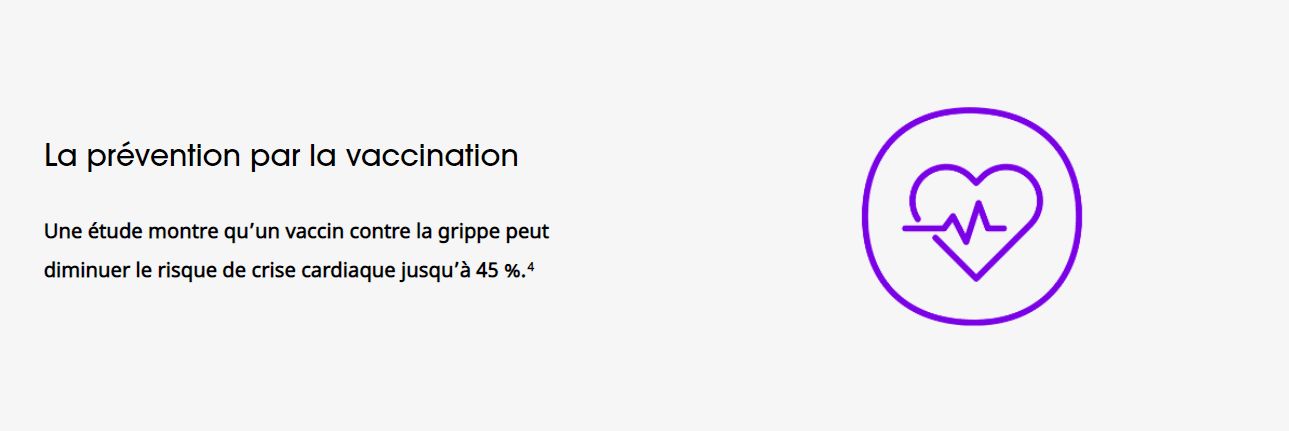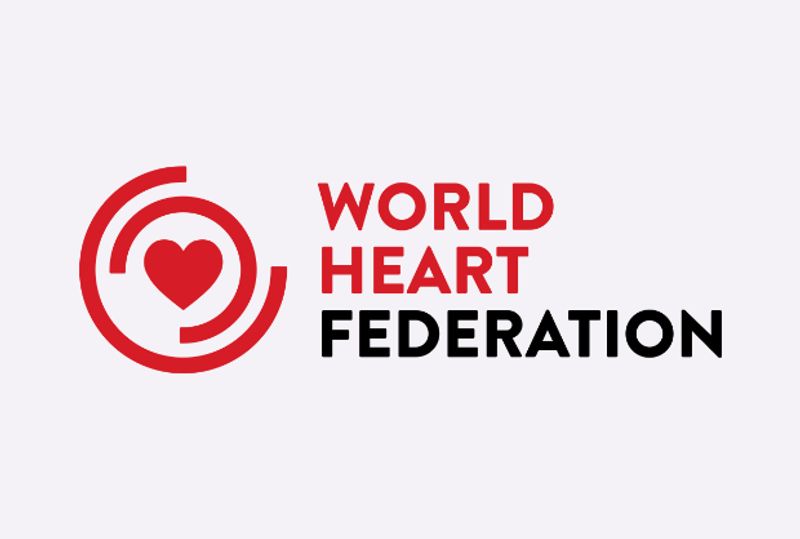Protecting Heart Health: Flu Vaccines and Beyond

We’re proud to support the World Heart Federation’s goal of cardiovascular health for everyone. Through innovative medicines and vaccines, we seek to protect every kind of heart: both healthy hearts and those that need more care.
Flu-related heart attacks
A balanced diet, exercise, and routine medical checks aren’t the only important paths to a healthy heart. So is getting a flu vaccine each fall. Influenza infection (flu) can trigger a heart attack or stroke, even in otherwise healthy people.1 In fact, the risk of a heart attack is 10 times greater within the week following a flu infection than at any other time.2,3
A flu vaccine can reduce that risk.4 Influenza strikes every winter, so recommended flu shots are available before the season begins (and throughout the winter).

Flu vaccines and COVID-19
Bogdana Coudsy, Global Head of Medical Affairs for Vaccines, explains the importance of flu shot timing: “The peak of the annual flu epidemic has become more unpredictable since COVID-19 began circulating.5 So the best plan is to get vaccinated early in the fall, at the start of countries’ vaccination campaigns,” she said.
Coudsy further advises, “You don’t need to choose between a flu shot and a COVID-19 booster. The World Health Organization (WHO) and multiple country health authorities have provided positive guidance on coadministration of a flu vaccine with a COVID-19 booster. At Sanofi, we have reported positive data on coadministration of our high dose flu vaccine and an mRNA COVID-19 booster”.6,7,8,9,10,11
High-risk hearts
In addition to helping reduce the risks of flu-related heart attacks through vaccination, we’re also helping prevent recurrent heart attacks in cardiovascular patients at most risk.
“Unfortunately, most people who have a second heart attack within 90 days of a first one will die within five years,”12 says Luciana Giangrande, Global Cardiovascular Medical Head.
Sanofi is one of the companies able to offer a complete range of solutions for high-risk cardiovascular patients and their physicians. These medicines enable them to reduce lipid levels, prevent heart attacks and strokes, and even save lives. That’s why we’re working with the global cardiology specialist community on a new kind of program.
We’re working with doctors to identify how at-risk patients may be missing out on life-saving solutions. We want to bridge those gaps with innovative health care tools and therapies.

Luciana Giangrande
Global Cardiovascular Medical Head at Sanofi
Bridging gaps in cardiovascular care
Our Pulse Acute Coronary Syndrome (ACS) Pathway program13 is helping bridge gaps in cardiovascular care. Because medical guidelines can change when new therapies or protocols become available, it can be challenging for doctors to keep up with the latest developments. ACS Pathway offers several solutions.
New tools for doctors and hospitals
We’ve rolled out a self-check tool that allows doctors to verify their current clinical practice scientifically against the latest treatment guidelines from medical societies. These checks help doctors understand and update their practice of interacting with at-risk ACS patients, from the acute phase to hospital discharge, through follow-ups and referrals.
The program also supports the use of patient management protocols in hospitals to ensure the optimal care appropriate for each patient’s risk level.
We’re also developing new initiatives to improve standardization in treatment approaches to ACS patients and their doctors in different health care systems around the world.
From helping to reduce everyone’s risks of a heart attack from influenza to helping prevent recurrent heart attacks for cardiovascular patients most at risk, it’s our way of using heart for every heart.
Explore more

Flu (Influenza)

On world heart day, it's time for a flu shot

Use heart against flu - The World Heart Federation
References
- Kwong, J. et al (2018) Acute Myocardial Infarction after Laboratory-Confirmed Influenza Infection. N Engl J Med 2018; 378:345-353 DOI: 10.1056/NEJMoa1702090
- Ohland et al (2020) Acute myocardial infarctions and stroke triggered by laboratory-confirmed respiratory infections in Denmark, 2010 to 2016. Eurosurveillance Volume 25, Issue 17, 30/Apr/2020 doi: 10.2807/1560-7917.ES.2020.25.17.1900199
- Warren-Gash et al. (2018) Laboratory-confirmed respiratory infections as triggers for acute myocardial infarction and stroke: a self-controlled case series analysis of national linked datasets from Scotland. Eur Respir J.2018;51(3):1701794).
- MacIntyre CR, et al. (2016) Influenza vaccine as a coronary intervention for prevention of myocardial infarction. Heart 2016;102:1953–1956. doi:10.1136/heartjnl-2016-309983
- Australian Department of Health and Aged (Care 2022) Australian Influenza Surveillance Report and Activity Updates. Accessed September 2022
- Izikson, MD et al (2022) Safety and immunogenicity of a high-dose quadrivalent influenza vaccine administered concomitantly with a third dose of the mRNA-1273 SARS-COV-2 vaccine in adults aged 65+ years: a Phase 2 randomised, open-label study. Lancet DOI:https://doi.org/10.1016/S2213-2600(21)00557-9
- World Health Organization (2021) Coadministration of seasonal inactivated influenza and COVID-19 vaccines. Accessed September 2022
- Centers for Disease Control And Prevention (2021) Prevention and Control of Seasonal Influenza with Vaccines: Recommendations of the Advisory Committee on Immunization Practices, United States, 2021–22 Influenza Season. Accessed September 2022
- Haute Autorité de Santé (2021) Avis n° 2021.0069/AC/SESPEV du 23 septembre 2021 du collège de la Haute Autorité de santé venant compléter l’avis du 23 août 2021 relatif à la définition des populations à cibler par la campagne de rappel vaccinal chez les personnes ayant eu une primovaccination complète contre la Covid-19. Accessed September 2022
- Joint Committee on Vaccination and Immunisation (2021). JCVI statement regarding a COVID-19 booster vaccine programme for winter 2021 to 2022. Accessed September 2022
- Standing Committee on Vaccination (STIKO) Germany (2021) STIKO-Empfehlung zur COVID-19-Impfung. Accessed September 2022
- American Heart Association (2021) Dangers of life-threatening second heart attack may be highest soon after the first. Accessed September 2022
- Healthcare providers can find information on the ACS Europath Project website